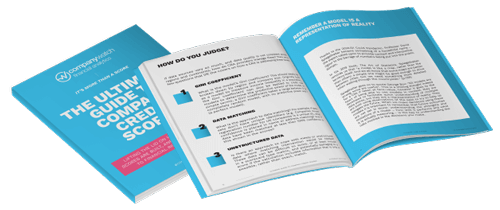Why Payment Data Is Valuable And How It Can Help You Manage Risk

The UK is plagued by a systemic late payment culture that seriously impacts SMEs. Late payments are not only a barrier to growth, in serious cases they can lead to insolvency.
This can pose a serious risk to your business. Recent research revealed around 50,000 business closures were the result of late payments. The knock-on effect on the economy is staggering. It has been estimated that paying small businesses on time could boost the economy by £2.5 billion yearly. The government has taken steps to tackle this issue but it is unclear if they will impact real change for UK SMEs.
At Company Watch, we realise how important it is to address this issue. That’s where our latest offering comes in. Payment Practises data is designed to empower your business with invaluable insights into the payment behaviours of the companies you work with.
This data will help credit managers make strategic credit decisions with confidence. It will also help safeguard your business from the adverse effects of late payments.
Let’s explore the impact of late payments, and how our Payment Practices data can provide you with valuable insights to enhance your risk management.
The problem with late payments
SMEs form the backbone of the economy, accounting for 61% of UK employment. Turbulence in the form of global conflict, the pandemic, high energy prices and rising inflation have created a difficult environment for these businesses.
Insolvency estimates have risen to more than 8,000 per quarter in 2024. A late payment could be the final straw that pushes many of these businesses over the edge. The knock-on effects of this could directly affect your business. A study analysing late payments in 2023 uncovered some worrying statistics:
- 2 million UK SMEs are negatively affected by late payments
- 55% of businesses said late payments increased in 2023
- 31% of SMEs said they spent 21-30 hours chasing late invoices
- 44% of businesses said that cash flow issues as a result of late payments were their biggest issue
The knock-on effects of volatile cash flow can have a serious impact on business productivity, planning, and paying suppliers, staff and clients.
Follow us on LinkedIn for the latest news and updates

Tackling late payments with data-driven insights
At Company Watch, we’re constantly innovating to find solutions to whatever problems your business might face. Payment Practises data is our new offering to provide you with a deeper understanding of the payment behaviours of the companies you do business with. Our platform gathers data daily, so you’ve got access to the most current data for each reporting period.
At the moment there are around 9,155 of the UK’s largest companies reporting their payment practices. That’s over 77,454 individual payment reports for our system to gather data from. These numbers are set to grow following the government's recent commitment to tackling late payments by reducing the reporting requirement threshold. The data we collect includes:
- Average days to payment - Measure from the date of invoice receipt to the date cash is received by the supplier.
- Percentage of payments by period - Track payments made within 30 days or fewer, between 31 and 60 days, and in 61 days or longer.
- Percentage of overdue payments - Highlight payments not made within the agreed payment period.
This information is presented on the system in easily digestible graphs showing the average days to pay and payment, as well as the payment percentage for all published years.
You can also view more information from the latest payment report, and previous payment reports. This information includes descriptions of payment terms, including:
- Maximum contractual payment period
- Availability of e-invoicing for suppliers
- Dispute process resolutions for suppliers
- Any changes to standard payment terms in the reporting period
- Access to supply chain financing
- Notification process with suppliers for changes
We have also added some unique derived data. Companies have a mandatory 30-day requirement to file their payment data. You can see how many days a company has taken to file and if they have breached this obligation.
Why is payment data so important to your business?
Late payments have obvious implications for the cash flow of the company providing the goods or services. But if a company has a pattern of late payments, what might be going on under the surface?
Access to this data can serve as an early warning indicator for financial distress. It may be a sign that a struggling business is trying to hold onto money, using small business suppliers for free credit to help their balance sheets. Payment data could provide you with vital information to protect your business from risk.
Recent research discovered a correlation between failing companies and late payments. It looked at several big companies that failed and analysed their payment performance in the period leading up to their downfall. Some of the companies included were:
- Credit Suisse
- Arcadia Group
- Joules
- Debenhams
- McColls Retail Group
- Midas Construction
The results showed a pattern - payment times at these failing companies were much slower and later than their better-performing competitors. Late and slow payment was part of the culture at these companies over a long period.
Including payment data on the Company Watch platform adds another layer to your risk management. You’ll gain a deeper insight into a company’s financial health allowing you to make informed decisions for your business.
If you’re interested in finding out more about how Payment Practices data can safeguard your business, get in touch today.

